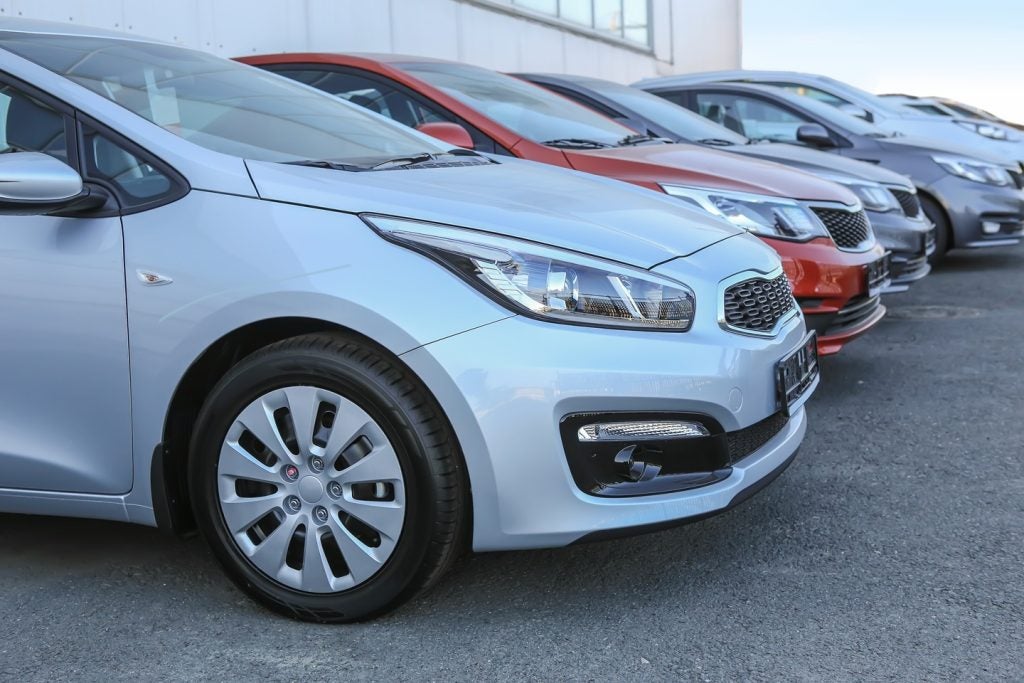The most recent quarterly Company Car Trends survey by GE
Capital Solutions, Fleet Services has found that the annual mileage
driven by users of company cars is falling – but that take-up rates
of employer-provided car schemes are rising.
In all, nearly three-quarters (72.4 per cent) of fleet decision
makers surveyed by GE Fleet said they expected demand for company
cars to rise in the next 12 months.
The main driver of reduced mileages, meanwhile, is the rising
cost of fuel, mentioned as a factor by an overwhelming 95.4 per
cent of respondents, up 14 per cent year on year.
Other trends which respondents saw influencing the fall in
business mileages were improved communication technology, mentioned
by 88.8 per cent of respondents and down 1.6 per cent year on year;
home working, which was up 11.3 per cent on last year to 87 per
cent; road congestion, cited by 86.2 per cent of those surveyed, up
17.2 per cent; and video and teleconferencing, up 0.9 per cent to
76.6 per cent.
“Company Car Trends has consistently shown in the last few years
that the company car is increasing in importance as a business
tool. However, there is a definite trend towards less – but perhaps
more thoughtful – car use,” said Rich Green, managing director of
GE Fleet, pointing to the fact that 40 per cent of company car
operating costs are currently accounted for by the price of fuel.
He noted that “the urge felt by many companies to take a greater
level of control over their carbon footprint” may also be behind
falling mileage figures.
Green concluded: “These predictions show that managers in charge
of operating company cars believe that mileage will continue to
fall in the future, although there is every indication they also
think the company car will remain essential to UK businesses.”
How well do you really know your competitors?
Access the most comprehensive Company Profiles on the market, powered by GlobalData. Save hours of research. Gain competitive edge.

Thank you!
Your download email will arrive shortly
Not ready to buy yet? Download a free sample
We are confident about the unique quality of our Company Profiles. However, we want you to make the most beneficial decision for your business, so we offer a free sample that you can download by submitting the below form
By GlobalDataFuel rise threat to staff numbers?
Further rises in the price of fuel could cause company car
fleets to shrink, a survey by YouGov on behalf of Lex, the UK’s
largest vehicle leasing company, has found. A significant minority
of companies surveyed by Lex said that the rising costs of fuel
will see an increase in the number of redundancies and hence a
lower take-up of company cars. Over a third (34 per cent) of
financial directors, controllers and chief financial officers
surveyed said that if fuel costs reach £2 per litre, financial
pressures will see a downsizing within their
organisations.
Managing director of Lex, Jon Walden said: “The Lex/YouGov
survey firmly illustrates the pressure that UK businesses are
feeling as a result of rising fuel costs, and in particular the
price of diesel.”
LLOYDS TSB AUTOLEASE
‘Green’ fuels rise up fleet managers’
agendas
Fleet managers are finally beginning to embrace the idea of
switching their fleets over to greener and alternative-fuelled
vehicles – although there remains widespread resistance to the
prospect of any fuel more exotic than diesel, a survey of 262 fleet
decision makers carried out by Lloyds TSB Autolease (LTSBA) has
found.
The respondents, all of whom managed fleets over 75 units in
size, were markedly more open to alternative fuels than they were
two years ago, when a similar survey found only 10 per cent looking
into the issue; in the 2008 survey 21 per cent said they were
considering a move towards alternative-fuelled cars. “Furthermore,
three times more fleet decision makers are planning to take action
on this issue above any other,” LTSBA said.
However, it is diesel which has been the main beneficiary of
changing fleet policies on fuel in recent years, LTSBA said, with
only 2 per cent of its customers looking to LPG, hybrids or
biofuels, despite “support and encouragement” from the lessor. In
2003, 66 per cent of company vehicles were diesel; today, the
figure is 80 per cent, thanks to better choice of model, a more
favourable tax position, improved performance and the dissipation
of the “stigma” of having a diesel vehicle, said Marcus Puddy, head
of fleet management at LTSBA.
“We hope that we’ll see the same take-up pattern for alternative
fuel vehicles in the future as cost and availability issues are
dealt with. There’s no doubt that fleet managers are placing
priority on moving towards alternative fuels, but until they are
readily available and incentives are put in place, we are unlikely
to see a shift anywhere near the magnitude of that of diesel.
“The government needs to now look into ways of encouraging
uptake of alternative fuels as it has effectively done for diesel,”
Puddy commented.
Jo Tacon and Katherine Gregory
Motor Finance Issue: 44 – June 08
Published for the web: June 26 08 10:13
Last Updated: June 26 08 10:22







